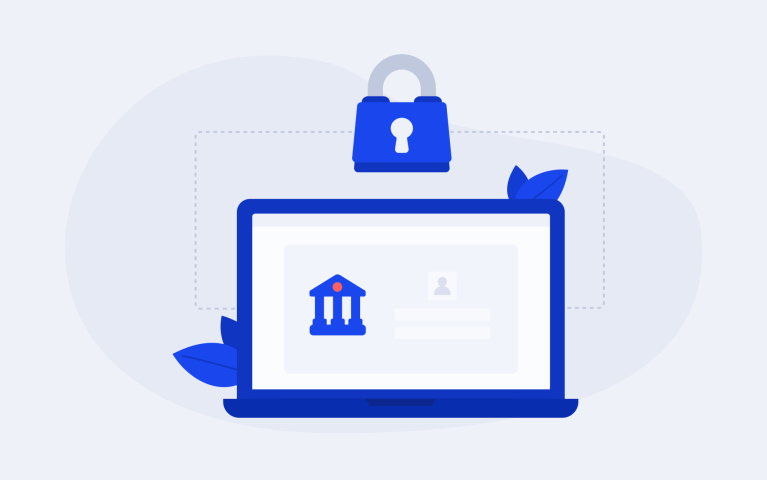Open Banking payments in Saudi Arabia: use cases and opportunities

Open banking is a revolutionary concept that has been gaining traction worldwide, and Saudi Arabia is no exception. In fact, the kingdom has taken a significant step forward in implementing open banking solutions.
In 2020, the Saudi Arabian Monetary Authority (SAMA) launched the Open Banking Framework, which outlines the guiding principles, regulatory requirements, and technical standards for open banking in the country. It started with the debut of the first phase, focusing on the Account Information Service (AIS). One of the main AIS use cases enables customers to consolidate their financial data from multiple sources into a single view, providing greater visibility and control over their finances. Building on the grounds of AIS, Saudi Arabia is about to adopt the second phase of open banking, which centres around the Payment Initiation Service (PIS). The introduction of PIS in Saudi Arabia is a significant step towards achieving the goals of Saudi Vision 2030, which aims to transform the kingdom into a digitally enabled society.
What exactly is PIS, and what advantages does it provide?
Payment Initiation Services, also called Open Banking payments, allow third-party providers to initiate payments directly from a customer’s bank account. PIS eliminates the need for intermediaries like cards, digital wallets, or manual payment orders in Internet banking, resulting in faster, cheaper, and more secure transactions. With PIS, customers can authorise payments directly from their bank accounts, giving them greater control over their finances. It includes benefits such as:
- Faster transactions: PIS enables real-time payments, reducing the waiting period associated with traditional payment methods
- Cost savings: By eliminating intermediaries, Open Banking payments reduce transaction costs, saving both individuals and businesses money.
- Enhanced security: Direct account-to-account transfers minimise the risk of fraudulent activities often associated with intermediate payment methods.
- Greater control: With PIS, customers have complete control over their financial transactions. They can easily manage their expenses, make timely payments, and avoid overspending.
Let’s now examine the diverse range of use cases where Open Banking payments can be leveraged to optimise payment processes, enhance customer experiences, and create new opportunities for growth and efficiency.
Business transactions
Business transactions are one area where PIS can bring significant benefits. Traditionally, businesses have had to rely on manual processes for making payments, such as writing checks or initiating transfers in the bank’s online interfaces. This not only takes up valuable time and resources but also increases the risk of errors and fraud. With PIS, companies can now automate a wide range of payment processes, including payment of invoices, sweeping (transferring funds between accounts of the same company held in different banks), and payroll. For example, a company can use PIS to automatically pay its suppliers upon receipt of goods or services, eliminating the need for manual checks or bank transfers. Similarly, PIS can enable companies to sweep funds between accounts held in different banks, consolidating cash reserves and optimising liquidity. It can also streamline payroll processes by allowing employees to initiate direct deposit payments straight from their bank accounts, reducing errors and increasing employee satisfaction.
Financing programs
With the assistance of account aggregation and Open Banking payments, financing services can significantly benefit and make informed decisions while adhering to Islamic Banking laws, including Murabaha financing. Such examples are auto financing, personal financing, and real estate financing.
With AIS, financial institutions can securely access a potential client’s financial data and account information, allowing for a thorough creditworthiness assessment based on transparency and fairness principles. This information empowers financing companies to make informed decisions, considering factors like income, expenses, and financial behaviour.
Additionally, PIS comes into play after the financing approval. Open Banking payments facilitate the swift and secure transfer of funds for monthly instalments, ensuring timely and automated payments that are Sharia-compliant. This not only benefits the customer by simplifying the payments but also strengthens the financing company’s position by promoting financial stability and the ethical principles of mutual cooperation.
E-commerce payments
E-commerce payments can be made easier and secured with Open Banking payments. Online shoppers can conveniently pay for their purchases directly from their bank accounts without the need to enter sensitive payment information such as credit card numbers or expiration dates. PIS allows consumers to securely authenticate and authorise payments through their online banking platforms, reducing the risk of fraud and protecting personal financial data. Merchants benefit from faster settlement times and lower transaction fees compared to traditional payment methods. Additionally, it can help prevent fraudulent transactions and disputes, as well as reduce the burden of compliance with payment industry regulations.
Salt Edge provides a comprehensive solution that makes payments faster and more secure by allowing end-users to initiate them straight from their bank accounts.
Recurring payments
Recurring payments can be automated and optimised with the Payment Initiation Service, bringing numerous benefits for both businesses and end users.
For businesses, PIS enables the efficient management of recurring payments, such as subscription fees or monthly instalments, by automating the payment process and reducing the likelihood of missed or late payments. This leads to improved cash flow and reduced administrative costs associated with managing recurring payments.
For end users, Open Banking payments offer a convenient and reliable way to make recurring payments, eliminating the need for manual input of payment details each time a payment is due. This saves time and reduces the risk of errors or missed payments, resulting in fewer late fees and penalties. Furthermore, PIS provides end users with greater visibility and control over their finances.
On top of that, Saudi Arabia, in particular, is taking the lead in regulating Variable Recurring Payments, which will allow businesses to adjust the amount of a recurring payment based on changing conditions, such as usage patterns or market fluctuations. While the EU has made significant progress in implementing Open Banking policies, VRPs are not yet within its regulatory scope.
Final thoughts
The introduction of the Open Banking payments in Saudi Arabia has the potential to revolutionise the open banking landscape in the country. With PIS, banks and financial institutions can offer their customers a secure, convenient, and user-friendly way to initiate payments directly from their bank accounts. This service eliminates the need for customers to share their financial information with third-party providers, thereby enhancing the security and privacy of their financial data.
As a provider of open banking solutions, Salt Edge is well-positioned to assist companies in Saudi Arabia with implementing PIS. With its extensive expertise in building API solutions, Salt Edge offers a comprehensive suite of services, including a gateway for accessing 5,000+ banks globally for account information and payment initiation, as well as open banking compliance solutions that help KSA banks become compliant in just 3 months. With its ISO 27001 certification and open banking license in the UK, Salt Edge employs the highest international security measures to ensure stable and reliable connections between financial institutions and their customers.
– Written by Vasile Valcov, Chief Commercial Officer at Salt Edge

















